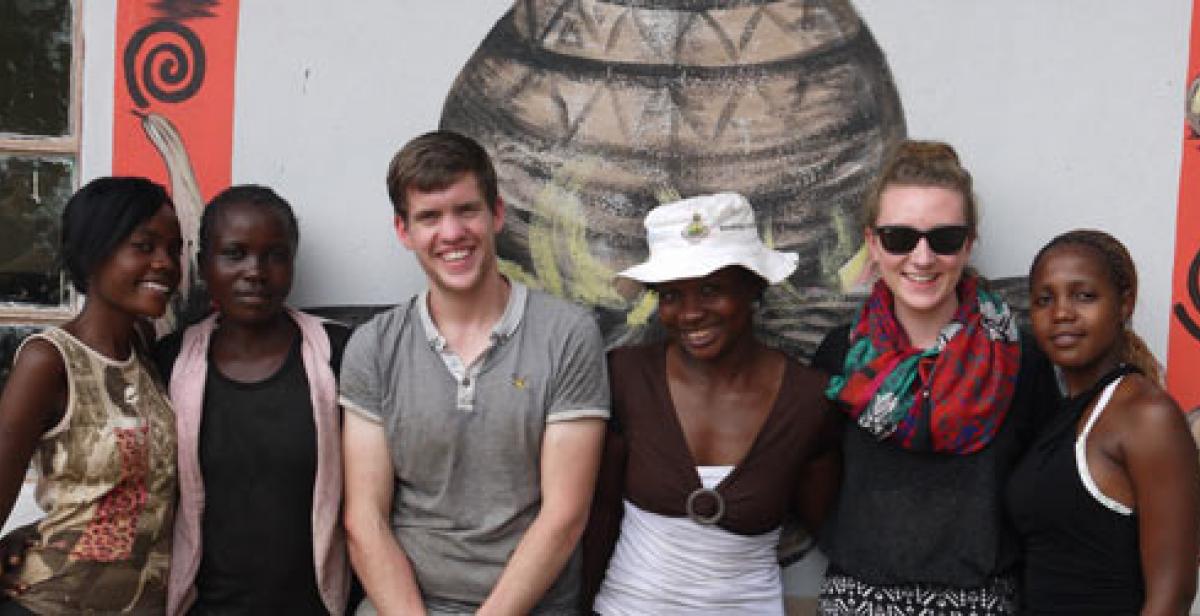Zimbabwe, 30 years ago
HIV/AIDS started here, as in many African countries, in the 1980s as a viscous animal that nobody knew what to do with, taking hold of the nation. It scared people, and in turn they panicked. All sorts of practices came into being, rooting from the traditional witch-doctor methods, that are common in this part of rural Africa. In some rural areas it was rumoured that a HIV positive man could cure himself by raping a child - what could be farther from the truth than that?
By the end of the 1980s ten percent of the population were thought to be infected with HIV.
Zimbabwe, 2006
This 10% exploded in the early 1990s, up to 26.5% in 1997. This was its peak, however. Increased education and resources brought in to combat the disease halted the trend of infection- the first country in Africa to witness that trend.
However, HIV has a follow-on effect. The implication of all of these infections was yet to come. Between 2002 and 2006, the population is reported to have decreased by four million, a figure borne from a multitude of political, economical and health reasons. In 2006, it was reported that child mortality had doubled since 1990. Orphan rates are estimated from between 1 million to 1.6 million orphans to Zimbabwe’s 12.5 million population.
Take a moment to imagine - one out of 12 people are orphans. How does an economy cope with that amount of dependency? How does a society cope with that much reliance?
Now – 2013
The state is in a state of repair. Child mortality has decreased from 50 deaths per thousand to under 30/1000, the population is increasing by a rate of 2.2%.
A lot can happen in 30 years, and indeed it has. HIV/Aids grew rapidly, reflecting the country’s descent into economic and political uncertainty. However, the national and international communities reacted, and its dominance reduced.
Zimbabwe has the highest literacy rate in Africa. People now know about HIV/Aids. NGOs and governmental organisations have talked extensively about the issue, and now, in business terms, the market is saturated with information.
As Progressio ICS volunteers, we met the Department of Education, Arts, Sports and Culture recently, presenting our plans for Binga High School to the District Education Officer at the State-controlled Ministry of Education for the area. He gave us a typical warm Zimbabwean welcome, giving us the aura of a man experienced, comfortable and capable in his position. He presented the current social and educational status of HIV/Aids to us: the wild beast from the beginning has been tamed, and social acceptance has grown. Here lies a problem. People are not afraid of it any more. The risks are known, the danger is not.
He told us:
“I can buy a coke in a shop for $0.50. It is the same cola to the luxury hotel next door, but they charge $3. Why? Because they add a slice of lemon. They charge so much more, and sell so much more effectively, because people want something different. People are tired of cheap information on HIV/AIDS. They need something new. Do away from the repetitions and presentations, do something new. Expand, go to the farthest reaches from Binga, and do new things. Only then will people take on board the dangers.”
The Future
The adult prevalence according to the government is down to 14.7%. It’s a massive decline, but still a huge proportion. Fighting HIV/Aids is not simple. It is connected into the social and economic conditions of people’s lives. To simply outline prevention, testing and treatment is a tactic that does not seem to work effectively. People need context to their lives- the real effect of HIV/AIDS on them and their social network.
HIV/Aids in Zimbabwe is on the decline, the goal is to get to the three zeros by 2020: Zero HIV/Aids related discrimination, Zero new HIV/Aids infections, Zero new Aids related deaths.
Progressio ICS volunteer Peter Jones reflects on HIV/AIDs in Zimbabwe
Photo: Peter with fellow volunteers and community members in Manjolo




Comments
children below the age of 16
children below the age of 16 should be given the right to decide for themselves pertaining the issues of HIV and AIDS.